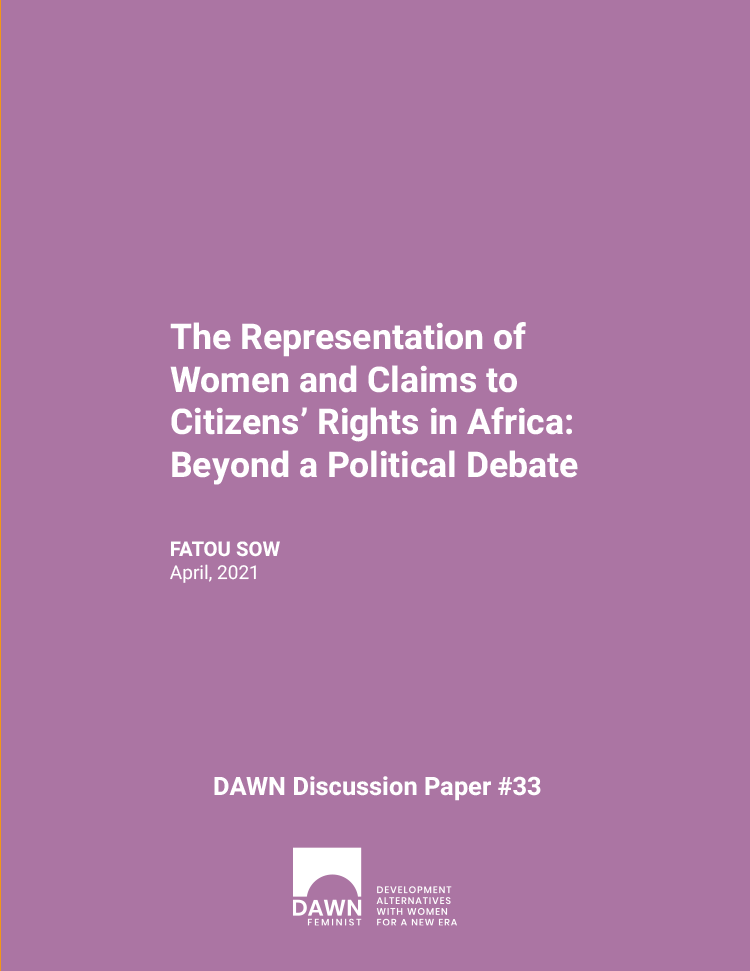A few questions by way of introduction
Representations of female identity are extremely important because they frame women’s individual stories and their claims for social and cultural rights, for sexual and reproductive rights, for economic and political rights – those are the most common. Two questions arise: first, how to be a woman, claim rights and freedoms, and remain African in contemporary societies where the identity values forged by our long histories have undergone profound changes because of – most notably – colonisation, decolonisation and globalisation? Second, how to build one’s identity freely, and assume it equally freely, when norms and rules are so entrenched in culture, religion and politics, and are primarily about societal control over individuals and groups in general, and over women in particular? It is a complex process which can weaken those women whose actions are questioned or condemned in the name of these “sacrosanct” norms.
Thus, women’s struggles do not fall only within the socio-political debate on gender relations, a debate which would seem almost easy to engage in. African quests for more equality, social justice and effective citizens’ rights are confronted with different representations which are “in competition” with one another: the muchcriticised Western models inherited from colonisation and globalisation; the (re)asserted African civilisational and ideological values; the religious values that are (re)claimed as cultural resources and “identity alibis” (alibis identitaires). African women are constantly challenged on what is considered as a Western approach in their outlook and aspirations. Whenever they oppose cultural injustices, their legitimacy is assessed by the degree of their Africanness. They are challenged on their religious identities, which are (almost) never to be questioned.
Now how can we elaborate a more relevant approach, or more relevant approaches, that are acceptable to us and can help us to understand the issues that affect us? The answer is far from simple. Academic research, like many forms of action-research or pure activism, is faced with a whirlwind of ideas about the way empirical data should be collected, read, sorted and analysed. Drawing conclusions is just as complex (Imam, Mama, Sow et al. 1997). I have experienced this whirlwind throughout my academic career and during my fieldwork. I have faced this complexity, especially about women’s issues, with more or less happiness, anxiety or suffering depending on the circumstances, the time and place where I was speaking 1International African Institute Biennial Lecture Edinburgh, United Kingdom, 11 June 2019. I believe most of us have experienced this.
I will attempt to briefly clarify my position as an African feminist, a position which is subject to various quandaries on the African continent. I am an African feminist, rooted in a continent which is deeply steeped in its cultures. And I do avail myself of the right to read and re-read the pages these cultures have produced, and to draw past and present stories from them. I want to be able to question their shifting values (because they are alive), to analyse their realities, transformations and contradictions. Should I not appraise their multifaceted contributions to universality, in relation to time and space, in order to imagine, if not dream, their future? Our cultures are not only memories of struggle against the colonial West, the dominating West. Our cultures are also our memories and life spaces, which we reinvent every day, at every moment, with every generation. Our cultures are the fruit of our actions and constructions, deconstructions and reconstructions, conquests and defeats, etc. We need to know them and revisit them, using the critical analytical tools that have been developed over time.
When asked for a title that encapsulates the essence of this talk, I suggested “The representation of women and claims to citizens’ rights in Africa”. As women, we are constantly represented according to cultural, religious and political ideologies (systems of ideas) which imagine us, fantasize us or criticise us, be it as individual or collective icons. It is up to us whether we succumb to these representations and assume them, claim them or challenge them. All those representations constitute as many stakes and challenges in claiming our rights as citizens. We shall now see how.

